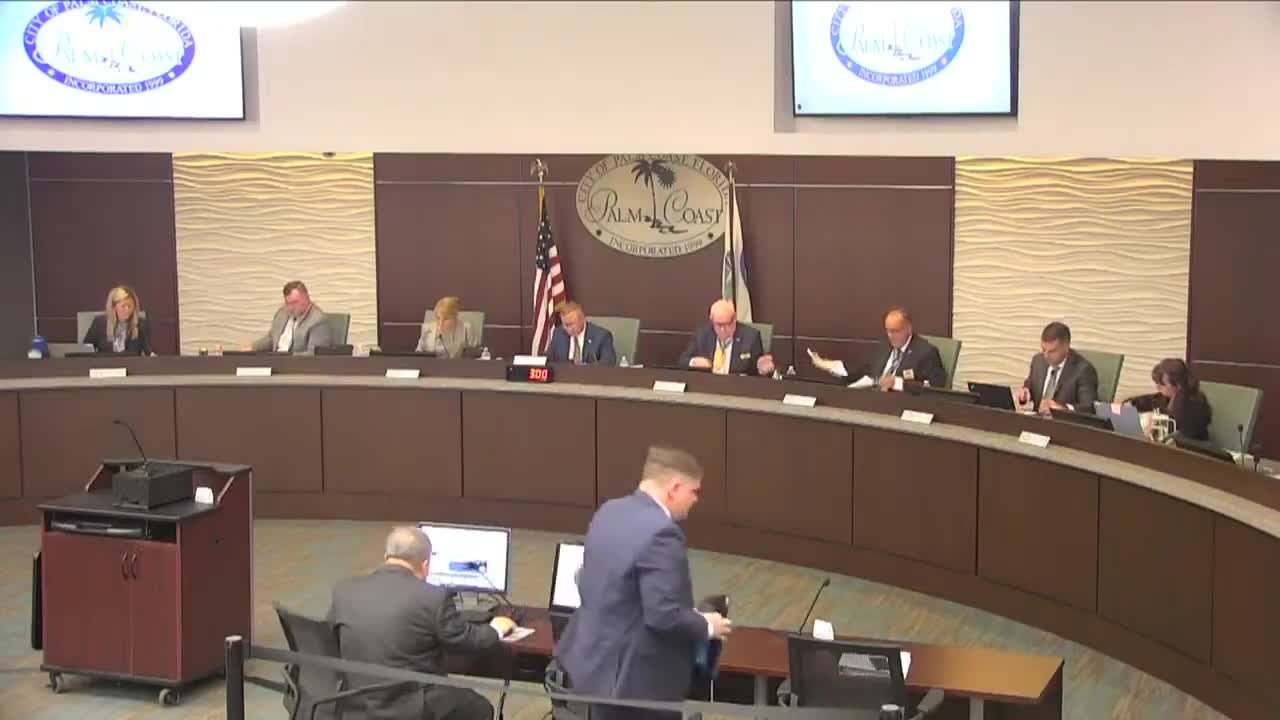Article not found
This article is no longer available. But don't worry—we've gathered other articles that discuss the same topic.
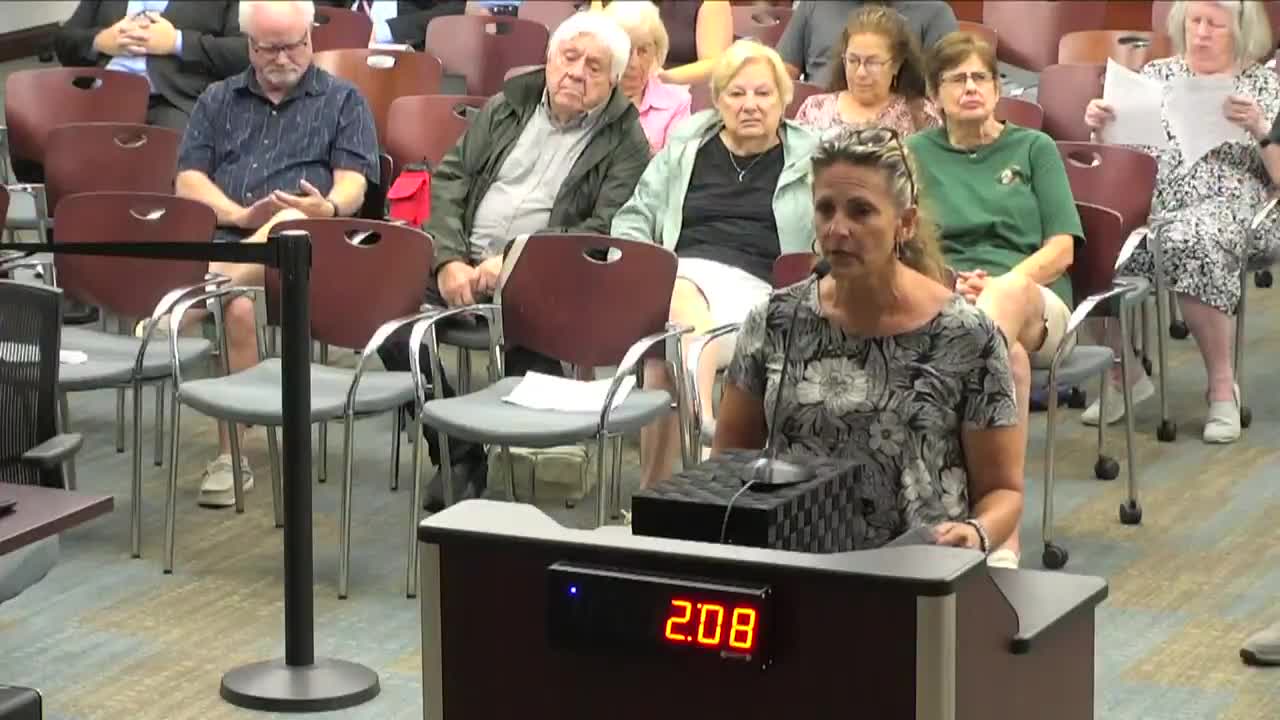
Residents urge council to address training aircraft noise and lead emissions near Flagler Airport
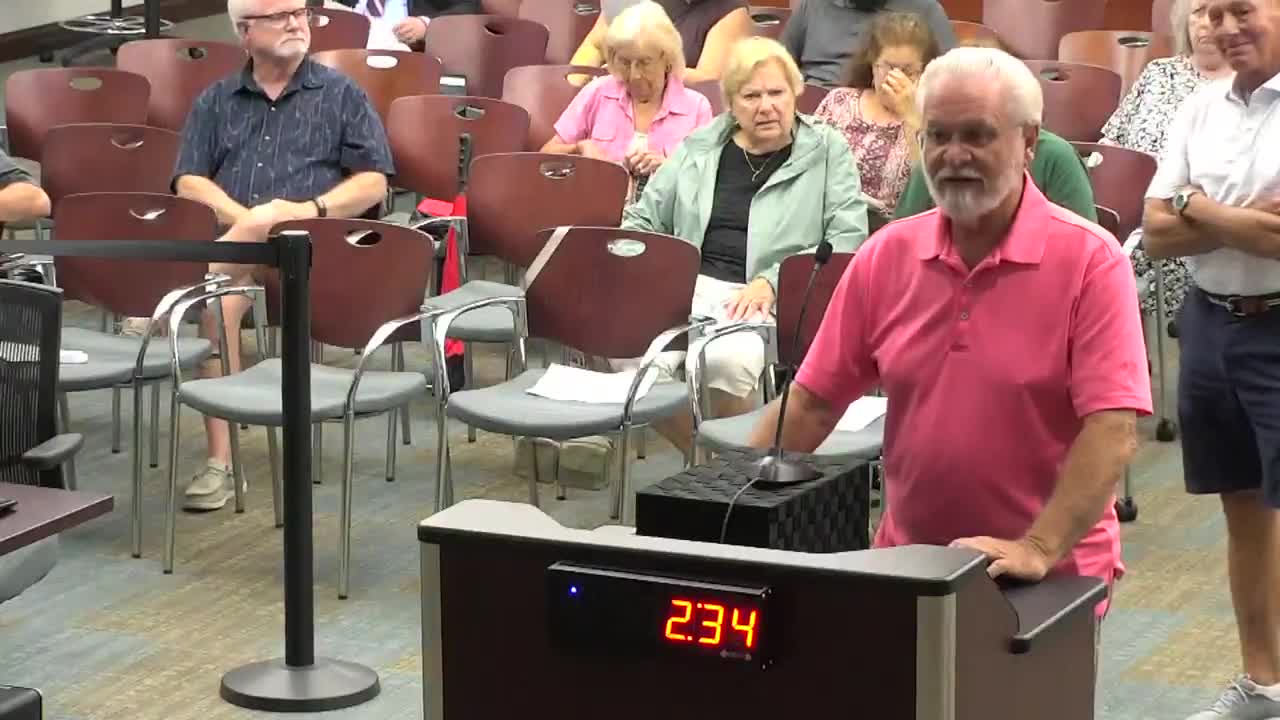
Residents press council on short-term rental noise and enforcement; staff points to permitting and fines
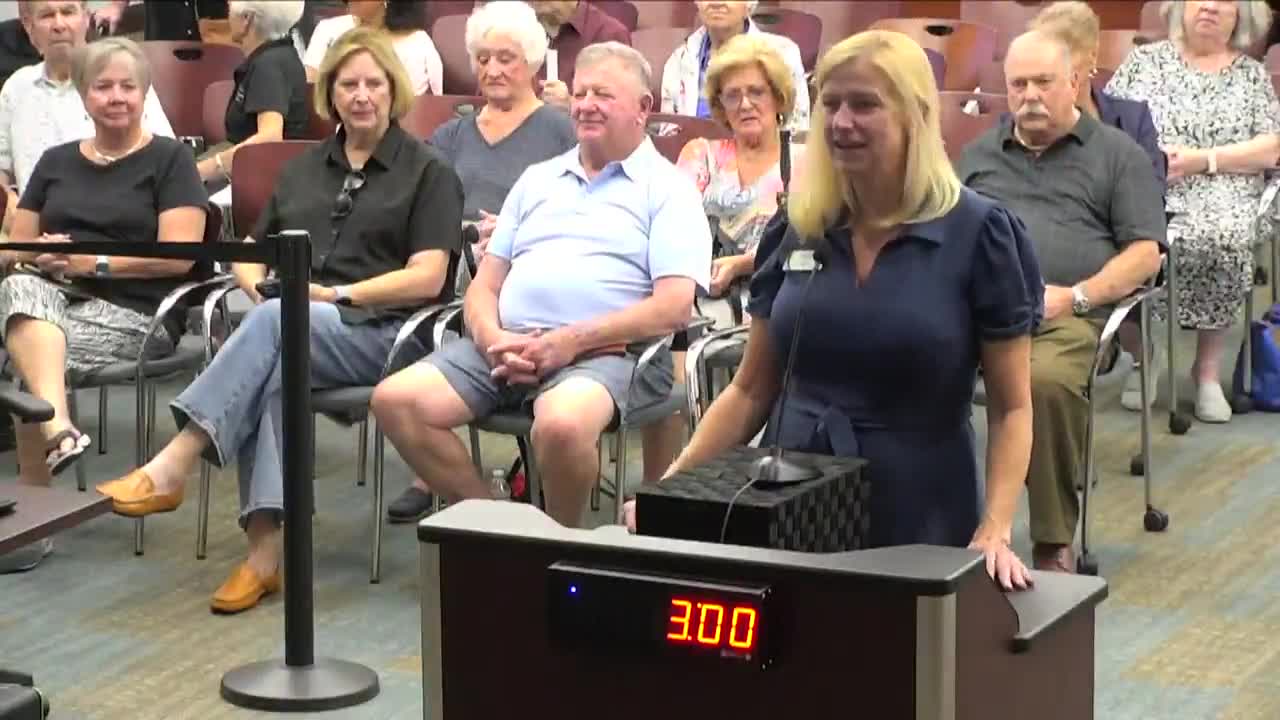
Palm Coast recognizes Flagler Cares’ 10 years; CEO reports growth and service metrics
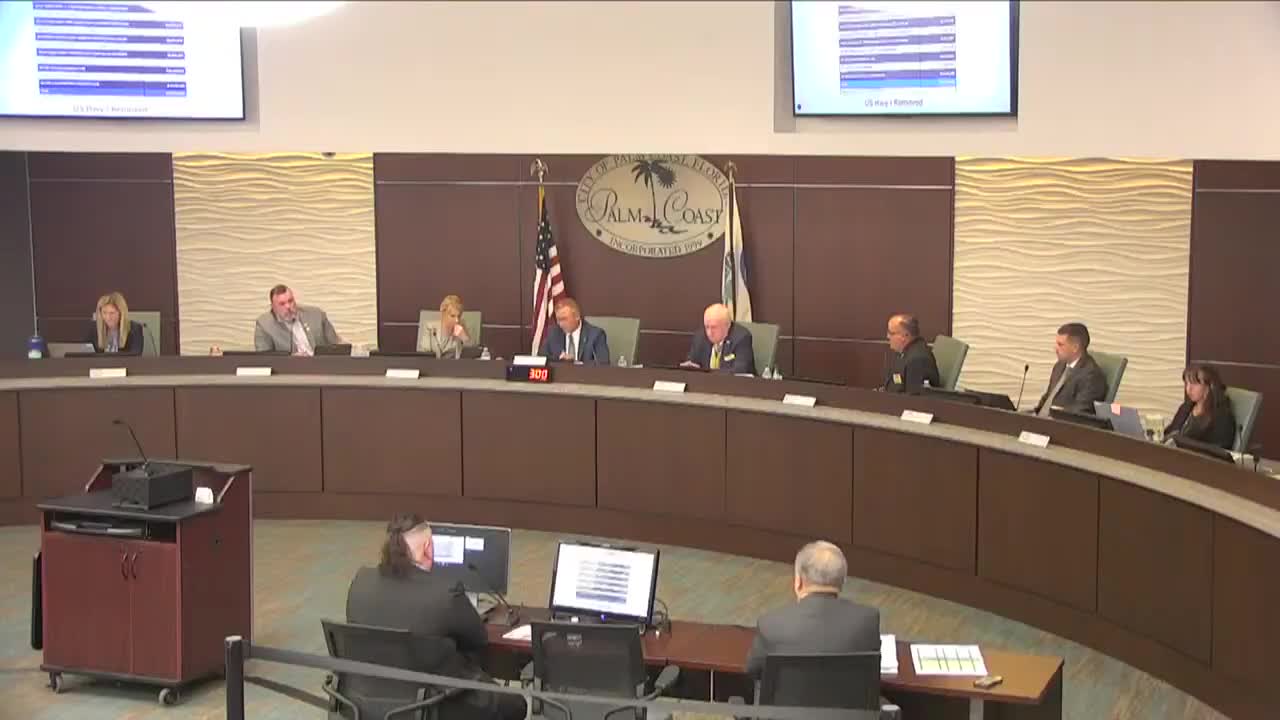
Council approves interlocal agreement with Flagler County Sheriff for temporary assignment of chief of staff
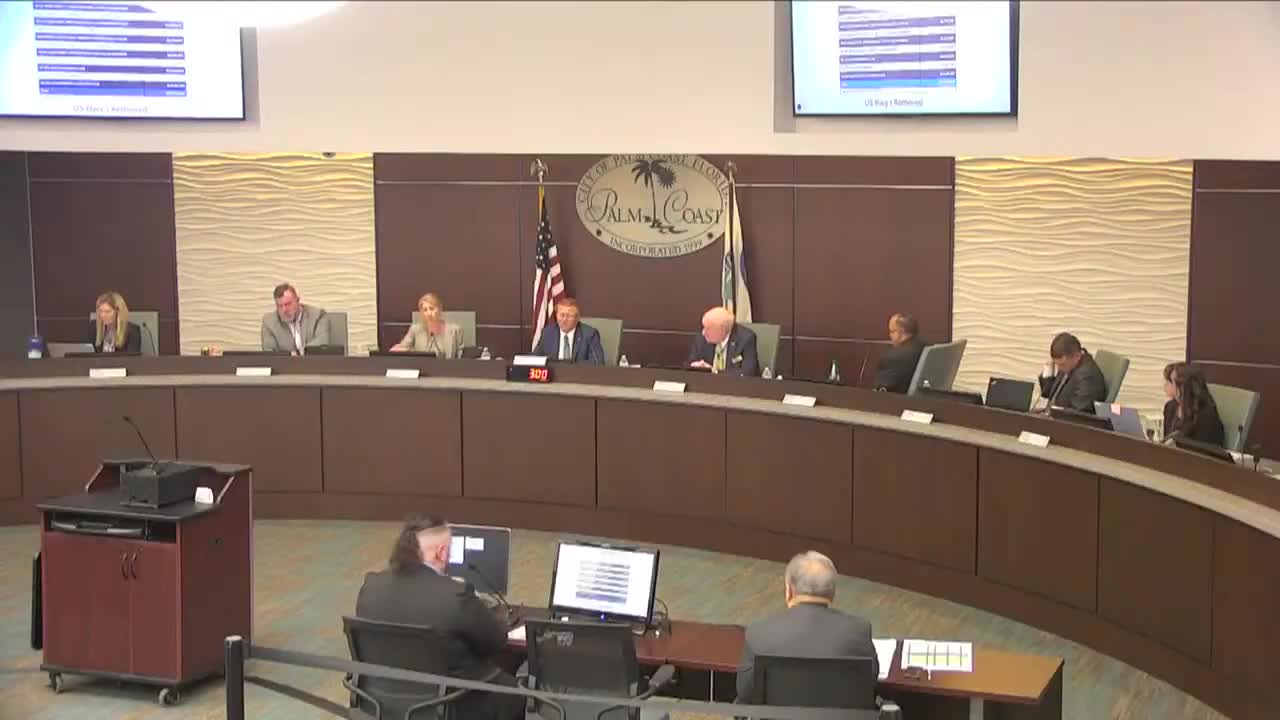
Council approves two ground leases for telecom towers; neighbors raise health and visual-impact concerns
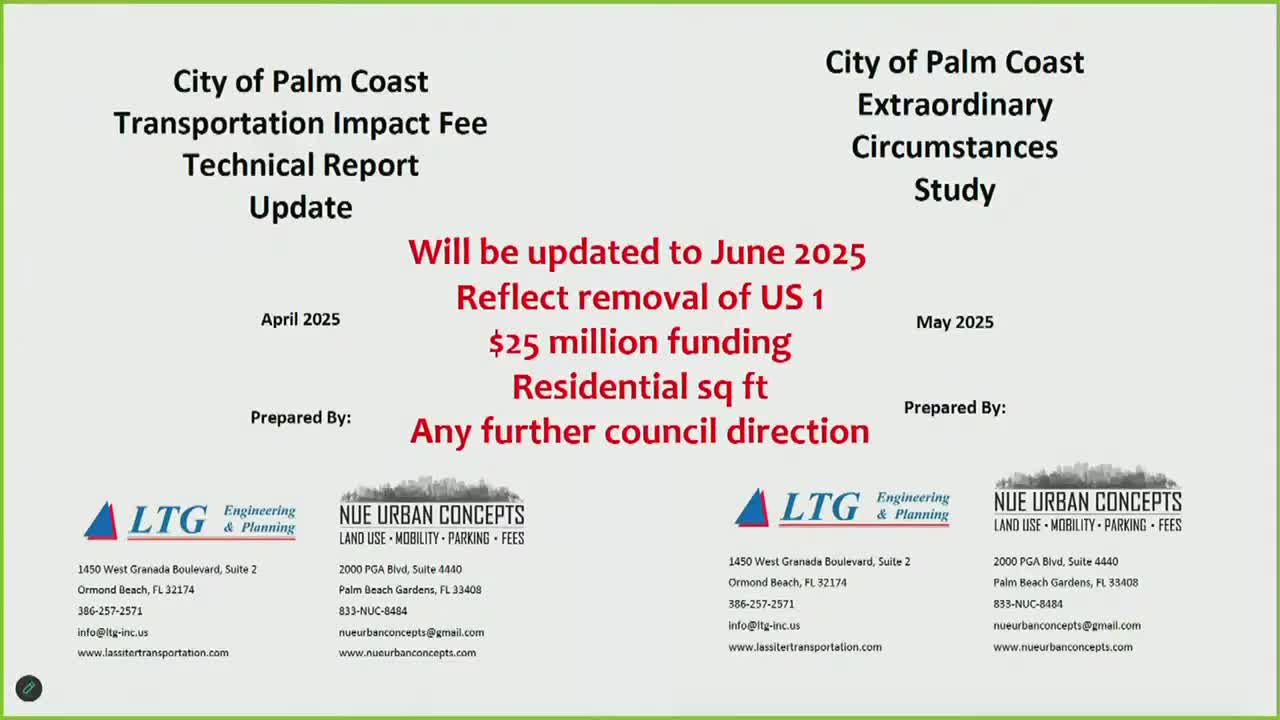
Council accepts updated parks impact-fee study and approves extraordinary‑circumstances approach
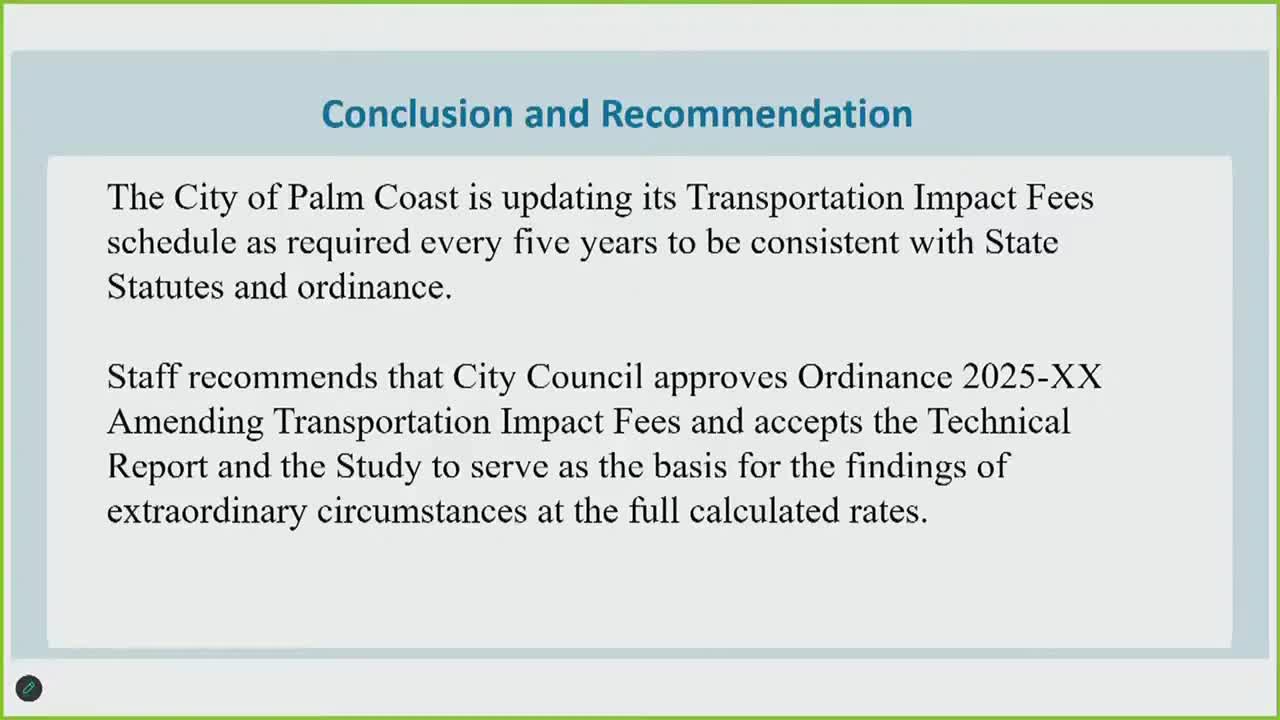
Council adopts fire impact fee update with ‘extraordinary circumstances’ finding
